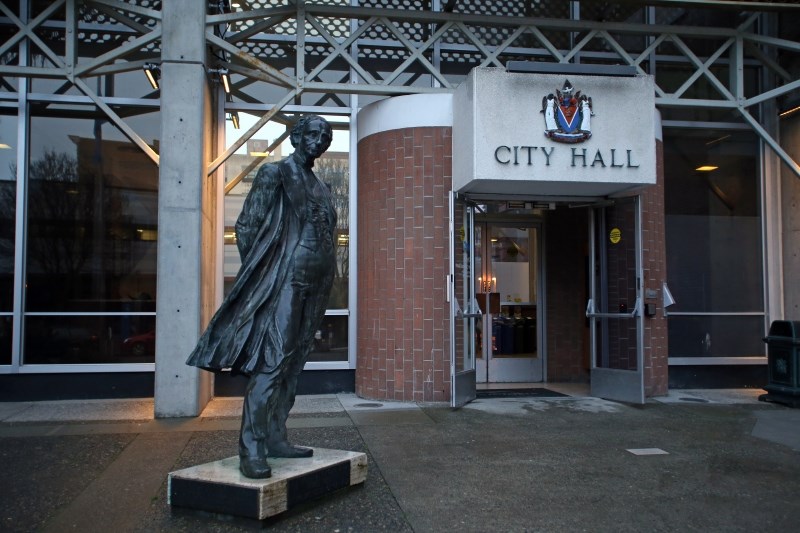In a move that some local politicians fear may leave them more vulnerable at the negotiating table, Victoria is pulling out from the Greater Victoria Labour Relations Association and will instead bargain directly with its unionized employees.
The in-camera decision came after councillors reviewed a consultant’s report of the city’s human resources practices. It found that the city’s participation in the GVLRA amounted to a duplication of services, Victoria Mayor Lisa Helps said Friday.
“It [the GVLRA] was a good service for the city when the city joined,” Helps said, but the city’s human resources department performs many of the same tasks. The mayor sent an email to GVLRA colleagues informing them of the decision.
Established in 1976, the GVLRA provides human resources support and bargains on behalf of several public sector employers in the capital region, including the Victoria Police Department, the Capital Regional District, the Greater Victoria Public Library, West Shore Parks and Recreation and several municipalities.
Part of the rationale behind forming the GVLRA was to present a united front so that municipalities weren’t “whipsawed” into signing richer contracts than they otherwise might, simply because a neighbouring municipality had.
Esquimalt Mayor Barb Desjardins called Victoria’s decision “very disappointing,” adding that the GVLRA has done an “amazing job … helping small and large municipalities provide good negotiations and wage increases.”
“It would just create considerable problems in terms of keeping wages level — giving good increases as required, but maintaining some control for the taxpayers,” Desjardins said.
GVLRA chairman Kevin Murdoch, an Oak Bay councillor, was reluctant to discuss specifics of Victoria’s decision, citing in-camera restrictions.
“In general, I think, we’re always going to be stronger with a united front in negotiations,” Murdoch said. “But we respect the City of Victoria’s right to leave.”
Metchosin Mayor John Ranns, who as a former water district employee negotiated on behalf of CUPE 598, predicted that Victoria would come to regret the decision.
“I was a union president and negotiator and it seems like we can’t learn from history. I’ve been through it before, and Victoria will be sorry,” said Ranns, who is the GVLRA vice-chairman. “CUPE will be going to them first.”
Helps said the “whipsaw” argument is a tired one. “CUPE Local 50 [bargaining local for Victoria unionized workers] gets their marching orders from CUPE B.C. and CUPE Canada, so I think that at a certain point, yes, there was whipsawing, but also I think all those wage increases in the 1970s had to do with inflation,” she said.
CUPE Local 50 president John Burrows could not be reached for comment.
The city pays $60,000 a year for GVLRA membership, but Helps said many of the services offered by the association — such as contract interpretation — are tasks the city’s own human resources department can and does handle.
Helps said there is more to a collective agreement than just a percentage wage increase, and the city wants to be able to negotiate directly.
As GVLRA decisions are made on a one-member, one-vote basis, the process doesn’t reflect Victoria’s position as the largest participant, Helps said.
“It’s not equitable from that point of view. We’re one vote even though we are the largest employee base and the largest fee for GVLRA membership.”



